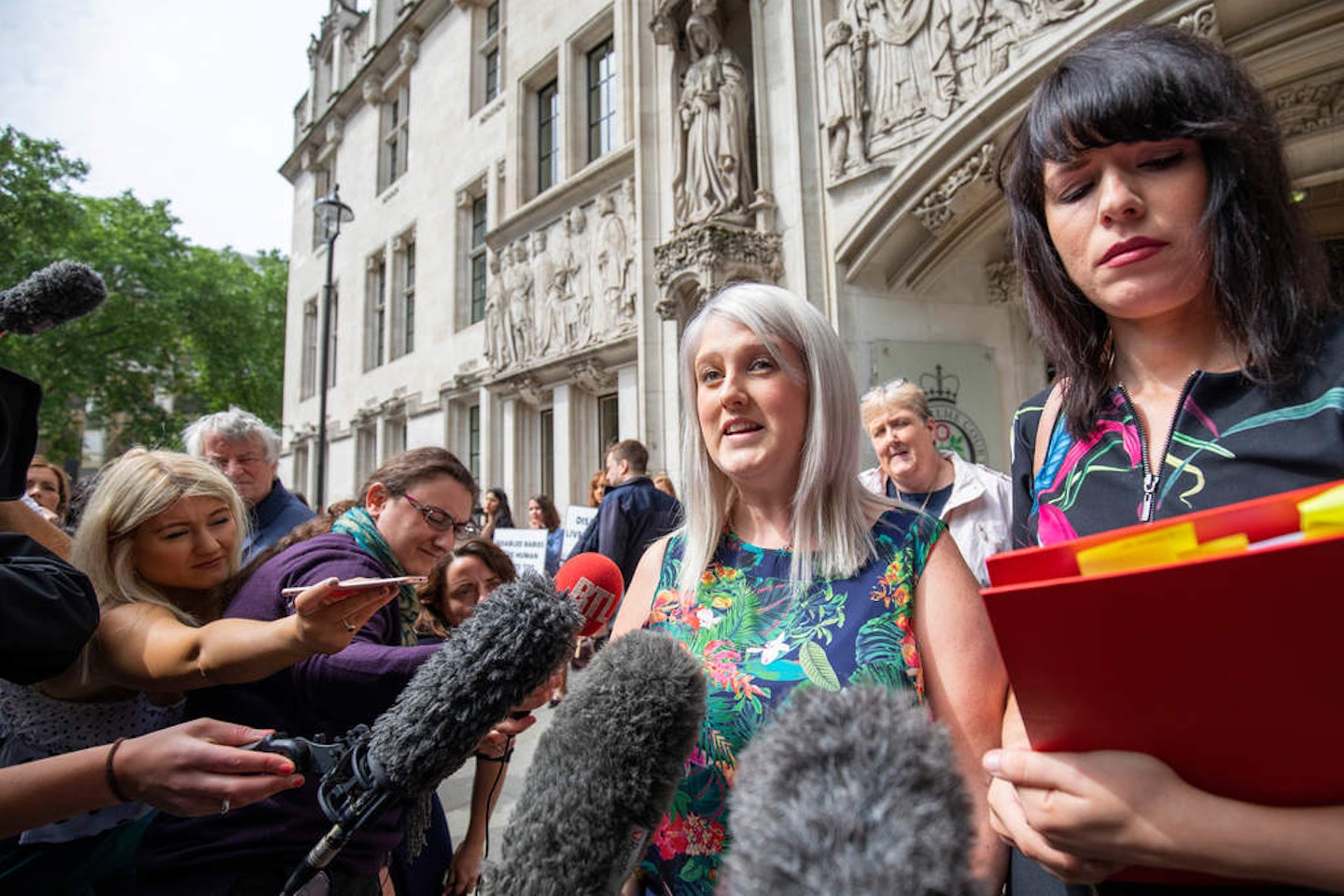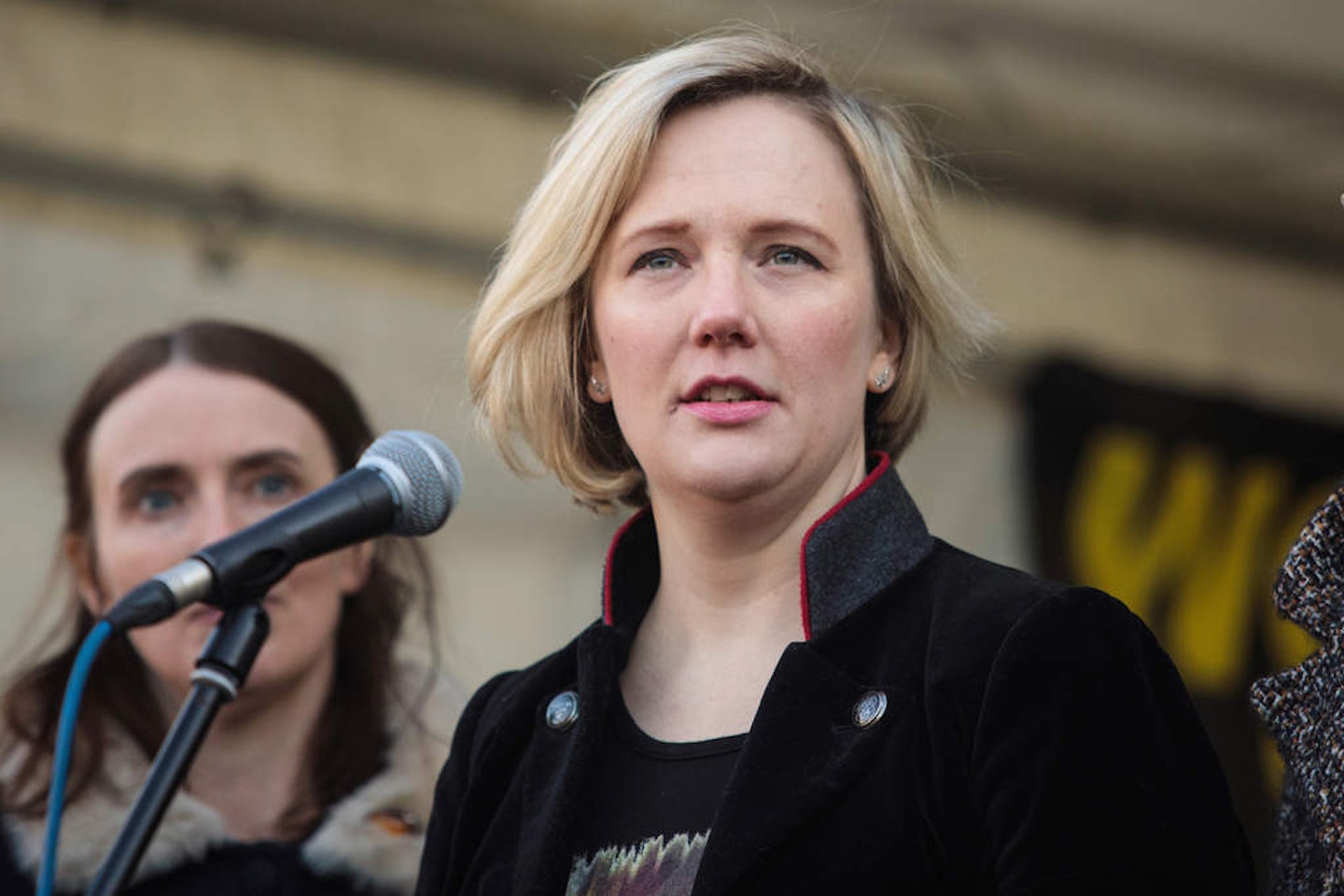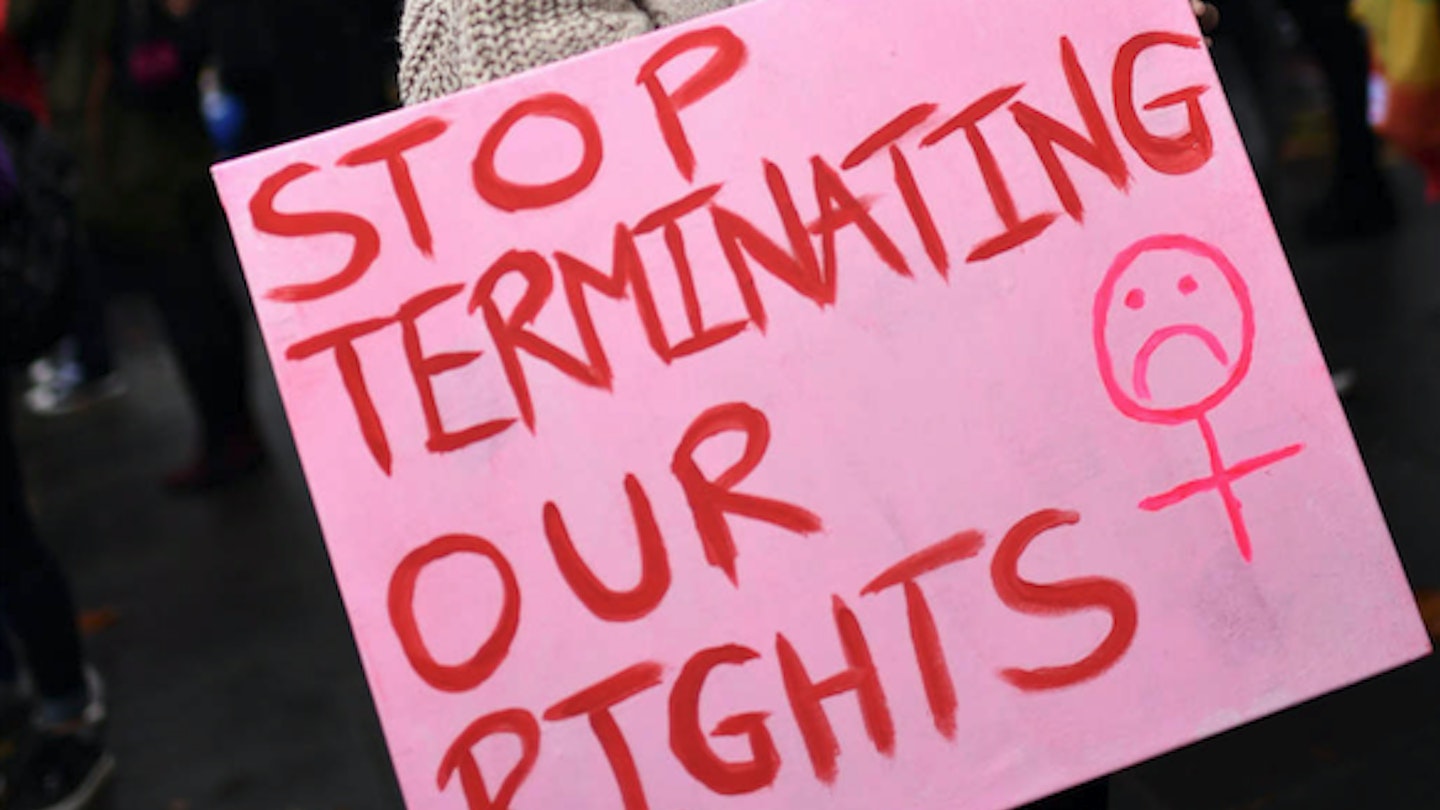Emma* burst into tears when she saw the faint blue cross on the pregnancy test. Broke, unemployed and recently split from her cheating boyfriend, a baby was the last thing on her mind. ‘I was 19, still living at home, and on antidepressants. Having a baby would have pushed me over the edge.’
Emma, now 26, decided to have an abortion. But terminating her pregnancy was far from straightforward and she was forced to travel to a clinic in England. ‘Having to leave my home made me feel grubby and ashamed,’ she says. ‘I didn’t tell a soul where I was going. It was like I was being punished for making that choice.’ Despite being born in the UK and holding a British passport, Emma lives in a country where abortion is still illegal. Under an archaic law dating back 157 years, a woman can only have a termination in Northern Ireland if her life, or physical or mental health, is at risk, making it one of the most restrictive anti-abortion laws in the world. The maximum prison sentence for obtaining, carrying out or helping someone have an illegal abortion is life. Pregnancies resulting from rape are no exception.
Last week, a report from Northern Ireland’s Department of Health revealed that only 12 abortions were carried out in 2018. Meanwhile, more than 900 women travelled to England, Wales or Scotland for a termination, while countless others went online to purchase abortion pills. Last Thursday, Amnesty International gave evidence to a Westminster committee, stating it is the responsibility of the British Government to reform the law (making abortion free, safe and local to access), since it is responsible for upholding the human rights of all women in the UK. This is the first time in recent history that a UK parliamentary committee will consider challenging the decision of the Northern Ireland Assembly not to reform its laws.
Growing up in Northern Ireland, as I did, it’s difficult to ignore the pro-life message that is rammed down young girls’ throats: pictures of foetuses on doctors’ surgery walls; anti-abortion leaflets handed out by the school nurse. There were daily protests outside a nondescript blue door in a side street in Belfast city centre, which housed the country’s only Marie Stopes clinic (shut down in 2017). As teenagers, we were petrified of getting pregnant. We all knew someone who’d ‘taken a trip to the mainland’, and never came back the same.

A recent poll found that 75% of people in Northern Ireland want the law to change, with 65% agreeing that abortion shouldn’t be classed as a crime. Pressure to change the law is building, especially since last May, when the people in the Republic of Ireland – historically more conservative than the north – voted by a landslide majority to repeal its anti-abortion laws. The following month, judges in our Supreme Court found that Northern Ireland’s legislation breached the European Convention on Human Rights.
The woman who brought the case to court, 28-year-old Sarah Ewart, had to travel to London for an abortion in 2013 when her 19-week scan showed a foetal abnormality that meant her baby wouldn’t survive in the womb. Still, she was denied a termination in her home country.‘I left hospital not knowing who to turn to,’ she says. ‘It was a scary and traumatic situation. I’m an ordinary woman who suffered a very personal family tragedy, which the law in Northern Ireland turned into a living nightmare.’ This week, Sarah’s case goes before Belfast High Court, which could lead to a judgement that Northern Ireland’s abortion law breaches the UK’s human rights commitments.

MP Stella Creasy, one of the voices in Westminster campaigning for change, says forcing Sarah and hundreds of other women to make this journey to access what, to those of us living in mainland Britain, is basic healthcare is ‘cruel and inhumane’. ‘Banning safe and legal abortion in Northern Ireland doesn’t prevent abortion,’ she adds. ‘It just puts women at risk because they take pills bought online instead, or have to find the money to travel. If you are raped in Northern Ireland, become pregnant as a result and seek a termination, you could face a longer prison sentence than your attacker.’
This, to many, is the ultimate injustice – and one that is all too real for Katie*, 34, who found out she was pregnant two years ago after a vicious sexual attack by her ex-partner. ‘There was no way I was going to bring his child into this world,’ she says. ‘I had always wanted a baby. But for it to be conceived in that way... I couldn’t bear it.’
Katie ended up having a miscarriage at 11 weeks, so the decision was taken out of her hands. But for nearly three months she faced the agonising prospect of giving birth to her attacker’s child. ‘From when I was young it was drummed into me that abortion was a sin,’ she explains. ‘I knew I couldn’t have the baby, but at the same time I knew getting rid of it was illegal. I was in the worst situation you can imagine.’
But thanks to a group of passionate female MPs and brave young campaigners, there is now a glimmer of hope in Northern Ireland. And for women like Katie, Sarah and Emma, change – and the choice they so desperately deserve – is finally on the agenda
